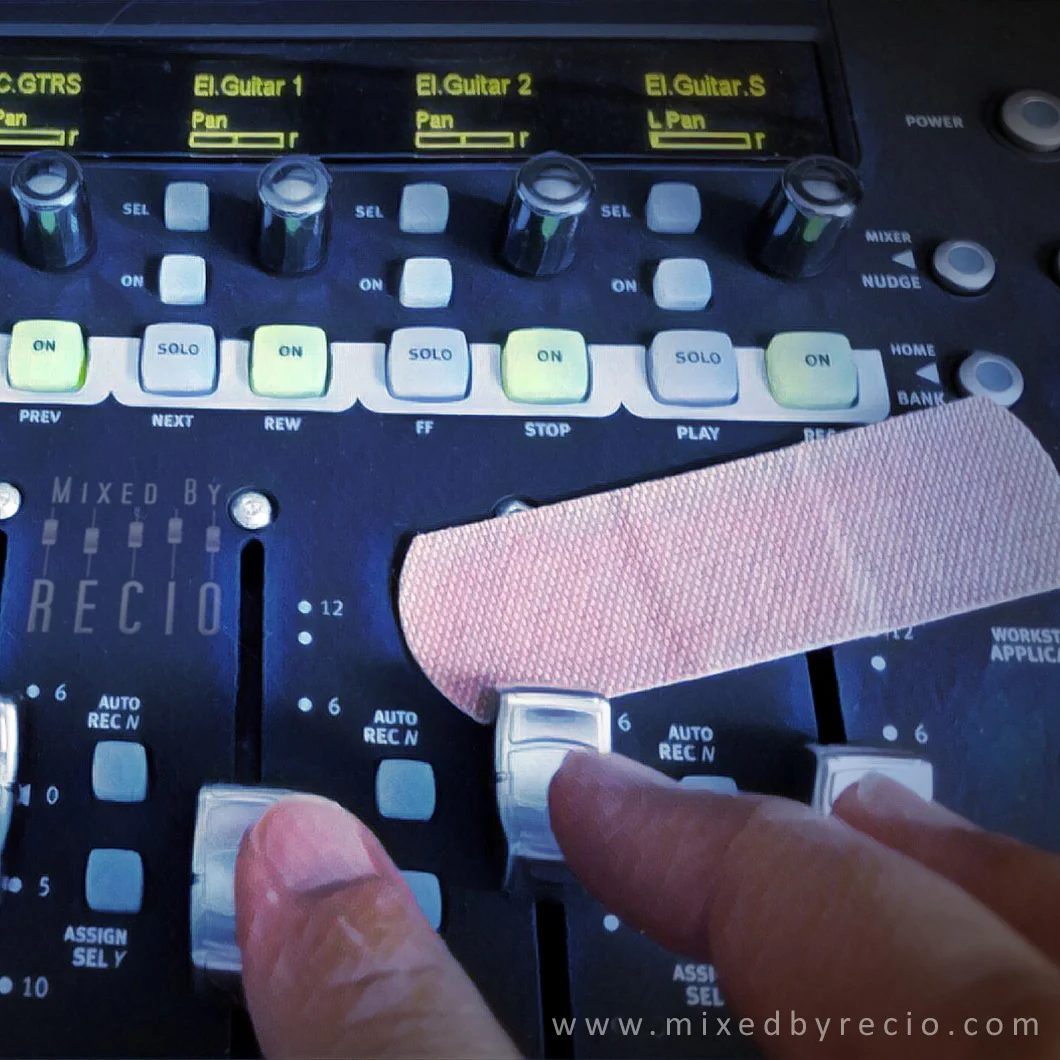Editing is not mixing. I don't say this to sound like a spoiled brat, or to imply that editing is a menial task beneath me. Quite the opposite, I may be one of the few people who can enjoy the technical challenge and get a certain satisfaction out of optimizing the raw tracks that come out of a productive tracking session.
The reality is that your raw tracks will almost always benefit from some editing and that has nothing to do with anyone's musicianship or talent. For better or worse, our ears are used to a certain standard and it's already hard enough to keep the listener engaged for the full length of a song, even without any added distractions.
If you or your producer haven't already done so, your mix engineer will usually assess the raw multitracks and make notes about anything that needs to be addressed before starting the mix session. Any concerns or recommendations ought to be discussed upfront to set the right expectations around how the resulting mix will sound.
Engineers are not magicians or mind-readers but, given some guidance and creative license, we can often work out some viable options to better serve our mutual client, the song.
The important thing is that any edits are made to enhance what's already been recorded, not to drastically alter the song or performance that you, as the artist, intended. Communication is vital in getting the right results for your music.
The short list that follows includes some common editing needs but don't assume your mix engineer is going to do any of this for you, even as a separate service. Plenty of mix engineers can actually turn down your project if there's a lot of editing to be done, so plan for a dedicated editing session somewhere between tracking and mixing—then figure out who will be handling that for you, and when. If you plan to mix your own tracks, you would still benefit from separating your editing needs from your mixing needs.
Fix before you mix. Start the mixing phase with the audio you want to be mixed, not fixed.
Regardless of who takes on the editing for your project, recognize that it’s a technical skill that requires you or your engineer to momentarily suspend the creative workflow to address something that distracts the listener from your song. It can take a while to get back into the creative zone again, and that delay isn't fun for anyone.
When the editing session gets out of control, it's usually best to go back and track the song again—or even go back to rewriting the song with your current changes in mind. While that's an extreme case, be intentional with what you write and perform. Go with your gut and see it through before second-guessing everything. Just some basic edits and a decent mix is often all it takes to validate your instincts and let you hear your song as a record.
Common Edits to Consider Before the Mix
Timing - Your song will have a tough time grooving when the rhythm section isn't working together in some places. You don't want 100% perfection from start to finish but, as an example, listen for instances in your recorded parts where the bass is getting too far ahead or behind the drums. Make sure an acoustic guitar part is locking in with other rhythmic elements, Most of the time, some quick edits to nudge a few bars forward or backward just a little is all it takes to lock in the groove.
Tuning - I'm talking vocals here or a monophonic instrument. Tuning issues with multi-stringed instruments such as a guitar or mandolin are best addressed during tracking so always check tuning between takes when recording! For many vocal performances, just some subtle auto-tuning (gasp!) to correct a sharp or flat note makes a wonderful difference. Unless you're going for a specific effect (think T Pain or that Cher song), you might only need to address a small section of a vocal phrase and still preserve the singer's personality and authentic singing style.
Vocal comping - It should go without saying that comping multiple vocal takes into a single performance is certainly NOT part of the mixing phase. This is a critical, creative, and often deeply personal process for the artist and producer to work through to present the best vocal performance possible. In most genres, the lead vocal will sell the song and selecting which take to use for each vocal phrase is not something you'd likely want to leave up to your mixing engineer alone.
Doubling parts (after the fact) - Doubling vocals, guitars, or horn parts is a common production technique to emphasize, thicken, or otherwise enhance a single performance. Again, if this is the intent it's best handled when it's baked into the production and arrangement during tracking while the singers or musicians are already in their zone and the tracking engineer already has the right sound dialed in to closely duplicate the same performance in the same room. Occasionally it becomes necessary to try to recreate a doubled part after the fact, even during the mix. Results can vary and while I've been able to pull it off, it just makes things much harder than it needs to be.
Trimming extended sections for length - I personally don't enjoy being asked to do this. If you wrote and performed a long 16-bar intro and then decide it should only be 4 bars, someone really ought to have figured that out during pre-production and tracked it that way. In the old days, trimming sections meant physically slicing tape with a razor blade and taping it back together again. That really made you think long and hard about whether it was a good idea or not. With modern DAWs it's not as dramatic but the results can still vary. It can still feel like something was edited, even when it may not sound like it was. Again, it's best to be intentional with your arrangements and song structure from the very beginning.
Samples to reinforce/replace drum hits - Probably one of the more common editing needs during a mix for a lot of projects not tracked in a professional room. I include this here, only because it can often be avoided entirely. I almost always try to work with the recorded drum sounds provided and only replace snare hits and kick drums when absolutely necessary to get the sound you're looking for. Most often, drum samples are blended in with the recorded parts to reinforce and complement rather than replace. With that in mind, work with your drummer, engineer, or producer to tune the drums while tracking and even swap out the snare, cymbals, or whatever, to fit the song. If you were still unable to get the exact sound you wanted when tracking, communicate with your mix engineer upfront and provide reference tracks (other commercially released songs) that he/she can use as a guide when mixing.
Clicks, pops, hiss, buzz, other excessive noise - Almost always the number one reason to edit raw tracks, even before the rough mix. I'll always listen to your tracks for these types of things and handle it quickly to make it a non-issue. A lot of tracks are recorded in home studios these days, so background noises from computer fans, air conditioning, and the neighbor's lawn mower are all common examples of things to listen for when tracking—do your best to minimize these and make note of anything you need help with when you get to the editing or mixing stages.
As always, communication is key. Talk openly about what your raw tracks need and be honest with yourself about how much of that is going to be possible with your timeline, resources, and budget.
Edits are often a necessary part of the process to tighten up even the best-recorded performances. The old "fix it in the mix" attitude can often lead to disappointing results so always do the work upfront to capture the sounds and performances you want your audience to hear on the finished record you intend to release.
Work with your engineer and producer to close any gaps before you start mixing so that your song can be heard the way you always intended, or better.
I'd love to hear what you've been working on lately. Tell me about your music!
If you find this information helpful, please share it via social media and within your music-making circles.
Please Subscribe
get thoughts on music-making & making music thoughtful






























Be strategic with your purchases to better integrate them into your existing music-making workflows.